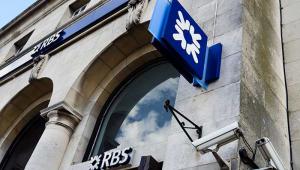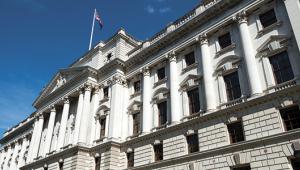In a key assessment released today, the National Audit Office have undertaken a thorough review of the process by which assets were sold, in what was the government’s largest ever financial asset sale.
The total value of the assets sold was £13.3bn, made up of former Northern Rock mortgages and loans, to a consortium led by US private equity group, Cerberus. The sale was finalised in November 2015 and took 18 months to complete in total.
The government nationalised Northern Rock after the financial crisis in 2007-8. The company was split into two entities, Northern Rock plc and NRAM, the latter of which inherited most of the residential mortgage-backed loans as well as a substantial securitisation programme called Granite.
UK Asset Regulation (UKAR), owned by HM Treasury, conducted the sale, which comprised £11.9bn of mortgages and £1.4bn of loans. The outcome was that the taxpayer received £5.5bn in cash while the equity group Cerberus took on £8bn in liabilities. In total, 270,000 mortgages were sold in the deal.
In terms of the assets sold, the vast majority (91%) were from the Granite securitisation vehicle.
According to the NAO, when judged against the government’s objective to shrink the balance sheet rapidly, the deal was a success and represented value for money.
Amyas Morse, head of the National Audit Office, said: “This was an extremely large and complex transaction that was professionally executed within a tight timeframe, though there are some lessons to be taken from the process.
“Overall, in the context of the overall objective of swiftly reducing the balance sheet, the sale achieved value for money.”
According to the report, the government reduced its debt by £13bn in 2015-16 thanks to the sale. And although the sale price exceeded UKAR’s valuation of the assets, the auditors highlighted the latter figure was based on some conservative estimates. The price achieved was £74m (0.6%) above the face value of the loans and £450m above the UKAR’s estimation.
During the process of carrying out other transactions, investors expressed a desire to buy Granite’s mortgages, which were attractive, since 85% of them pay a rate of interest of 4.5%. However, they had a higher loan-to-value and arrears ratio than the market average.
This was unexpected, and represented a larger asset pool than UKAR originally considered selling. The government moved quickly to take advantage of this opportunity, and gained the relevant approvals.
UKAR also acted to reduce the financing risk to bidders and in doing so made the deal more attractive to private equity firms, which rely more on third party funding as opposed to banks, which can also use customer deposits.
Due to size of the sale, the number of bidders was limited. However, the report found that good competitive tension was maintained throughout the sale process. This was evidenced by the number of bidders at each stage, the convergence of bid prices, the willingness of bidders to incur high transaction costs, and the acceptance of key terms and conditions of the sale agreement.
However, the report highlighted the limited degree of competitive tendering in UKAR’s procurement process was not good practice.
Customers who have loans that were sold in the transaction have, according to the auditors, been well-protected in the short term, with restrictions in place protecting their mortgage repayment rates for twelve months. However, although the mortgages have been sold to entities protected by the Financial Conduct Authority, the auditors pointed out that they could be sold at some future date to organisations that are not FCA-licensed.




















